Nourishment is the most important thing needed by every living organism to stay alive and well. For chickens, they need quality feed to help them maintain a good and healthy life, as well as, provide meat, egg, or both, depending on your reason for raising them. The nutrients your chicken need, at different stages of their life is contained in the type of feed that appropriate for their age and purpose.
Chicken feed is usually tailored towards providing certain nutrients as needed by different chickens, based on why they are being raised. Chickens that are raised to produce eggs have a different nutrient composition in their feed, although similar in some sense, to the nutrient composition of chickens that are raised specifically for their meat – broilers.
Some chickens are fed certain types of feed majorly because of the housing system they have as some require more energy, if raised to roam about, than others, raised in an enclosed system. In other words, you need to get the best chicken feed for free-range chickens to provide them with adequate energy to roam around.
From all that you’ve read, one thing is sure, you need to provide the right feed for your chicken, and it all differs, depending on their purpose. Therefore, let us have a look at the different types we have.
If your looking for a starter guide on raising backyard chickens take a look at our complete article.
Types of Chicken Feed
The various types of chicken feed usually have the same ingredients, with some changes in some cases, but in different proportions as these ingredients provide different nutrients in different quantities for the improved quality of life and production of your chickens.
Chicken feed types can be categorized based on different factors, such as age of chickens, nature of feed, and purpose of chicken.
Based on Age of Chicken
Chickens did not start out as adults, they were once fertilized eggs that went through incubation, and then brooding before they began to approach adulthood. The types of feed they consumed while they were chicks differ in nutrient composition to what they were fed after their brooding stage, and as they went into adulthood to start production.
Based on these stages of life, the types of chicken feed that they consume are:
Starters Chick Feed
These types of feed are the protein-rich chicken feed that is fed to young chicks that have just been hatched. The high protein content helps them grow rapidly between their first week as chicks and their sixth week, which marks the end of their brooding.
On average, starter chick feeds have protein content of about 24%.
Growers Chicken Feed
Growers chicken feed is the appropriate feed for chickens that have just left their brooding stage, it is the feed meant to prepare them for the beginning of their productive years. Chickens that are fed these types of feed are usually between six and twenty weeks old.
Although this feed also contains high protein (about 18%), it is not as high as it is in the starter Chicks feed.
Layers and Broilers Chicken Feed
Layers chicken feed is feed appropriate for egg-laying hens. It is rich in protein, other nutrients, and especially calcium, to help strengthen the shell of the eggs they lay. Chickens called layers are usually about 20 weeks old and they are the only types of chickens that are fed Layers Chicken Feed. This feed should not be fed to other chickens because of its high calcium content as it may cause kidney issues in them.
Broilers chicken feed is the type of feed given to the meat-producing chickens. It is exceptionally high in protein and fats, to help the chickens attain their potential maximum weight in about six to eight weeks. Although this feed is made for broilers, they can be fed to dual purpose chickens as long as it will not cause prolapse in them when they lay eggs.
Based on Nature of Feed
The nature of feed refers to the appearance of the feed your chickens eat. It might appear powdery, gritty as in sand particles, or whole. The types of chicken feeds that exist based on the nature of feed include:
Pelleted Chicken Feeds
These types of chicken feed are made available to chickens in pelleted forms. That is, the feed has been made into small cylindrical shapes that chickens can easily pick up. They are easy to manage and store, and they reduce the wastage of feed.
Crumbled Chicken Feeds
Crumbled chicken feeds have small particles of grains that are present due to the crumbling of these grains into smaller particles. They are also easy to manage and store but not as much as pelleted feeds.
Crumbles are the midway point for chicken feeds between pelleted feeds and mashed feeds.
Mashed Chicken Feeds
Mash is the finest type of chicken feeds you can give your chickens. Finest, not in terms of quality – not that they are of lesser quality – but in terms of the ingredients’ particle sizes. They are ground to become as powdery as possible and are usually the most used feed for chicks.
Sometimes, mashed chicken feeds are sprinkled with water to form porridge, which is easier for chickens to eat.
Purpose of Chickens
Chickens are generally raised for two reasons, to produce eggs or meat that we eat. Some chickens are capable of satisfying both purposes while others are not. Regardless, the type of feed for chicken that specifically lays eggs and those that are specially for meat production are different as we have seen in the Layers and Broiler Chicken feeds explained above.
Nutritional Requirements and Additives
Different chickens require different types of nutrients. Chickens that are raised in an intensive system do not have the same energy requirement as chicken raised on a free-range system. The former does not need energy as it is always in a cage, expending little energy throughout the day, whereas, the latter expends enormous amounts of energy daily during its expedition and exploration of the run and its surroundings.
Also, nutrients such as protein, calcium, magnesium, iron, and the likes, are needed in different quantities depending on age and the purpose a chicken serves.
Layers generally require more calcium than other birds. This is because it makes their eggs have stronger shells. However, it causes a problem in the kidney of other chickens as they do not need so much calcium.
Sometimes, to meet these nutritional requirements, some ingredients that may not be advisable for use in feeding chickens are used. To make them nutritionally acceptable, feed additives are used. There are different types of feed additives and they perform different functions.
Feed Additives
- Feeding Enzymes – These are used in feeds to help break down the complex nutritional bond in some ingredients such as wheat and barley, commonly used in feed production. Examples include probiotics and prebiotics.
- Antioxidants – This is important in keeping feed from going bad, especially those that are high in fats or that contain ingredients that have high fat contents. Examples of antioxidants include butylhydroxylanysole (BHA) and vitamins C and E.
- Mold Inhibitors – such as Mycofix or Toxisorb, are used in chicken feed to prevent the entry of mycotoxins, that may be present in chicken feed due to the mold formation that may have occurred in grains used to make them, into chickens’ bloodstream.
- Free-flowing agents – these additives are included in feeds to help them remain fresh and not cake in their feeders. They do not react with the individual ingredients of the feed.
- Coccidiostats – are additives in feeds aimed at helping to reduce the population of coccidia in the digestive guts of chickens, especially chicks.
Feed supplements
Chicken feed supplements are nutritional supporters of chicken feeds. They are used to give chickens extra nutritional needs that may be insufficient from their feeds. Some supplements can supply a host of nutrients while others are used to give poultry certain nutrients.
For instance, in laying chickens, a high amount of calcium is needed, to supply for deficient calcium, supplements such as shell grit helps to supply it.
Other supplements include Oyster shell and mealworms.
Best Chick Starter Feed
Manna Pro Chick Starter
If you have to handle your layers with care, you need to handle your chicks with extra care as their immune system is vulnerable to attack by various pathogens, especially coccidia that causes coccidiosis. This disease can cause a great extent of loss if not tackled early and the best and easiest way to help prevent it from occurring is presented in one of the best chick starter feed, Manna Pro Medicated Chick Starter, fortified with Amprolium, which is effective against Coccidiosis.
It does not focus on tackling coccidiosis alone, it also provides essential nutrients for your chicks’ growth and development as it contains vitamins and minerals, about 18% protein for rapid growth of their muscles and other tissues.
It is available in crumble state, which means your chicks will have fun picking the particles one after the other till they are full.
Pros
- Contains protein, vitamins, and minerals
- Fortifies chicks’ immune system against pathogen attacks
- Medicated feed with Amproline to guide against coccidiosis
- Saves cost on vaccination against coccidiosis
Cons
- Does not contain the optimum protein content for chicks’ rapid growth
Best Chicken Feed for Laying Hens
Purina Layena Hen Feed Crumbles
For continuous production of eggs all year round, your laying hens have to be in the best of health, otherwise, you will have some chickens without eggs for weeks or even months. Their health boils down to the quality of feed they eat, and one that sure is quality is the Purina Layena Hen Feed Crumbles, specifically made for laying hens.
Purina Layena Hen Feed Crumbles is made available for chickens in the semi-coarse state of crumbles, making them easy to pick and digest by chickens. Its digestion is further improved by the presence of prebiotics and probiotics that help to break down complex carbs in grains used to formulate the feed.
It also contains xanthophyll; to give egg yolks their characteristic deep yellow color, Calcium manganese; for strong eggshells, Lysine and Methionine; healthy and full feathers and improved egg production, and Vitamins A, D, and E; for outstanding reproductive vigor.
This feed is suitable for chickens that are 20 weeks and above, that is they are at the point of lay.
Pros
- Enhances egg production in laying chickens
- Gives egg yolk deeper yellow color
- Improves digestion of feed through the supply of probiotics and prebiotics
- Contains essential amino acids
- Helps chickens sustain a healthy reproductive health
Cons
- Not suitable for chickens other than layers
Best Organic Chicken Feed
Scratch and Peck Feeds Organic Layer Feed
It is understandable if you are worried about the source of what your chicken eats. Some chicken feed producers do not care about how they grow these crops that are processed for your chickens, they will do whatever they can to have their profit soaring. However, organic and Non-GMO crops and animals, processed to make your high-quality chicken feeds are reliable and certified to be safe.
One of such organic chicken feeds is Scratch and peck Feeds. It is certified by USDA to be organic and Non-GMO and provides safe nutrients to your chickens to keep them healthy.
It is rich in carbohydrates, obtained from whole grains that are unprocessed and packaged whole, to give your chickens the full range of nutrients they have to offer. Contains Peas, Wheat, limestone, Corn, Sesame, fish, Vitamin and Mineral Pre-mix, all organically grown and nurtured.
Pros
- Organically grown and unprocessed grains
- Organically grown protein sources such as fish and peas
- Excludes Soy from its ingredients
- Certified by USDA.
Cons
- Not suitable for Chicks.
Best Chicken Feed Supplement
Manna Pro Crushed Oyster Shell
You will like to put a stop to the annoying breaking of eggs when you pick them. Sometimes, you wonder if you’d handled them too roughly but even when you’re extra careful, they break. They do so because your egg-laying chickens are not having enough calcium, leading to weak eggshells.
The solution to this issue is a feed supplement, Manna Pro Crushed Oyster Shell. It is made from oyster shell and coral calcium to provide the lacking calcium in your chickens’ diet and make their eggshells stronger.
Manna Pro Crushed Oyster Shell is heat-treated to make it pure enough for chickens to eat. The oyster shells are crushed to an approximate pellet size of regular feed, making them easy to mix with pelleted chicken feeds, and easy to store and manage.
Pros
- Excellent source of calcium
- Heat-treated for purity
- Helps to strengthen chicken eggshells
Cons
- Cannot be fed to chickens other than layers.
Flygrubs Superior to dried Mealworms for Chickens
Sometimes, it takes more than the regular feed your chickens pick from their feeder to give them all the nutrients they need. The same way you pop some pills or take some tablespoons of syrup to supply some lacking nutrients, your chicken needs.
One of the best means of giving them that extra nutritional boost, without worrying so much about safety is the Flygrubs Superior to dried Mealworms, specifically made for chickens.
It is made to function as a chicken feed additive and a supplement by helping to improve ingestion and digestion in your chickens. It also contains about 40% protein, 23% fats, and more calcium than you can find in mealworms. With these nutrients, it promotes egg production with stronger shells. It also helps chickens of dual-purpose grow faster and better.
It also contains other nutrients such as lysine, phosphorus and dietary fibres which aid digestion and improve the feather production of chickens.
Pros
- Contains more nutrients than mealworms
- Helps to promote egg production
- Strengthens egg shells
- Improves immunity of chickens
Cons
- Not suitable for all chickens due to high calcium content.
Hatortempt dried Mealworms for Chicken
Every chicken, regardless of its age, should be fed with adequate protein to enhance its growth and help it sustain its production potential. Although chicken feed helps to supply ample amounts of protein, it is sometimes inadequate and needs to be supplemented.
One of the best chicken feed protein supplements is Hatortempt Dried Mealworms for Chickens. It is essentially made to provide chicken, and other birds, with high amounts of proteins and other nutrients, such as, crude fibre, vitamins, fats and edible oils. These nutrients aid in digestion of complex carbs that are present in some feeds, and aid in the production of eggs and improvement of immunity in chickens.
It is also made from natural sources and has no artificial additives or preservatives.
Pros
- Contains high amounts of proteins and other nutrients
- Aids in digestion of complex carbs from chicken feeds
- Improves immunity of chickens
- Made from natural ingredients
- No artificial preservatives or additives.
Cons
- May attract rodents to the chicken coop.
Frequently Asked Questions on Chicken Feed
What to Feed Chickens for the Best Tasting Eggs?
Have you ever eaten some eggs and wondered if they were laid by some other animals than chickens, despite the fact that you collected them from your chicken coop? The dissatisfactory taste could be as a result of the feed your chickens eat.
To improve the taste of their eggs, give them some feed supplements such as mealworms, eggshells, oyster shells, and vegetables. They contain minerals that will help improve the taste of their eggs.
What is the Best Feed for Chickens to lay Eggs?
Layers can feed on any chicken feed and manage to lay some eggs for you. However, to get the best from your laying hens, give them layers’ chicken feed. This feed helps them to improve and maintain their egg production ability by providing vitamins and minerals such as Vitamins A, D, and E in quantities that are inadequate in other chickens’ feeds.
It also contains high amounts of calcium, which is not suitable for other chickens, which helps to strengthen their eggshells and improve the health of their crops.
Should you Make Your Own Chicken Feed?
You might be worried about the quality of feed that is available commercially to your chickens. If you find them to be dissatisfactory, you can formulate feed for your chickens. Some farmers find this cheaper than buying already formulated feeds.
However, you need to thoroughly go through a guide on chicken feed formulation for different ages of chickens as their nutritional requirement varies.
Conclusion
Chicken feed is an important aspect of rearing backyard chickens. It is important that you get it right, else, you will have your egg-laying chickens performing below par, your meat-producing chickens looking stunted and you will end up being frustrated.
Know the right type of chicken feeds for your chickens as appropriate for their age and purpose. Ensure to use medicated chick feeds for your chicks to reduce the cost of brooding as it helps to eliminate the need for vaccination.
Feed your layers with mealworms and oyster shells frequently, and your broilers with feeds that contain enzymes to help them digest and process the feed properly.

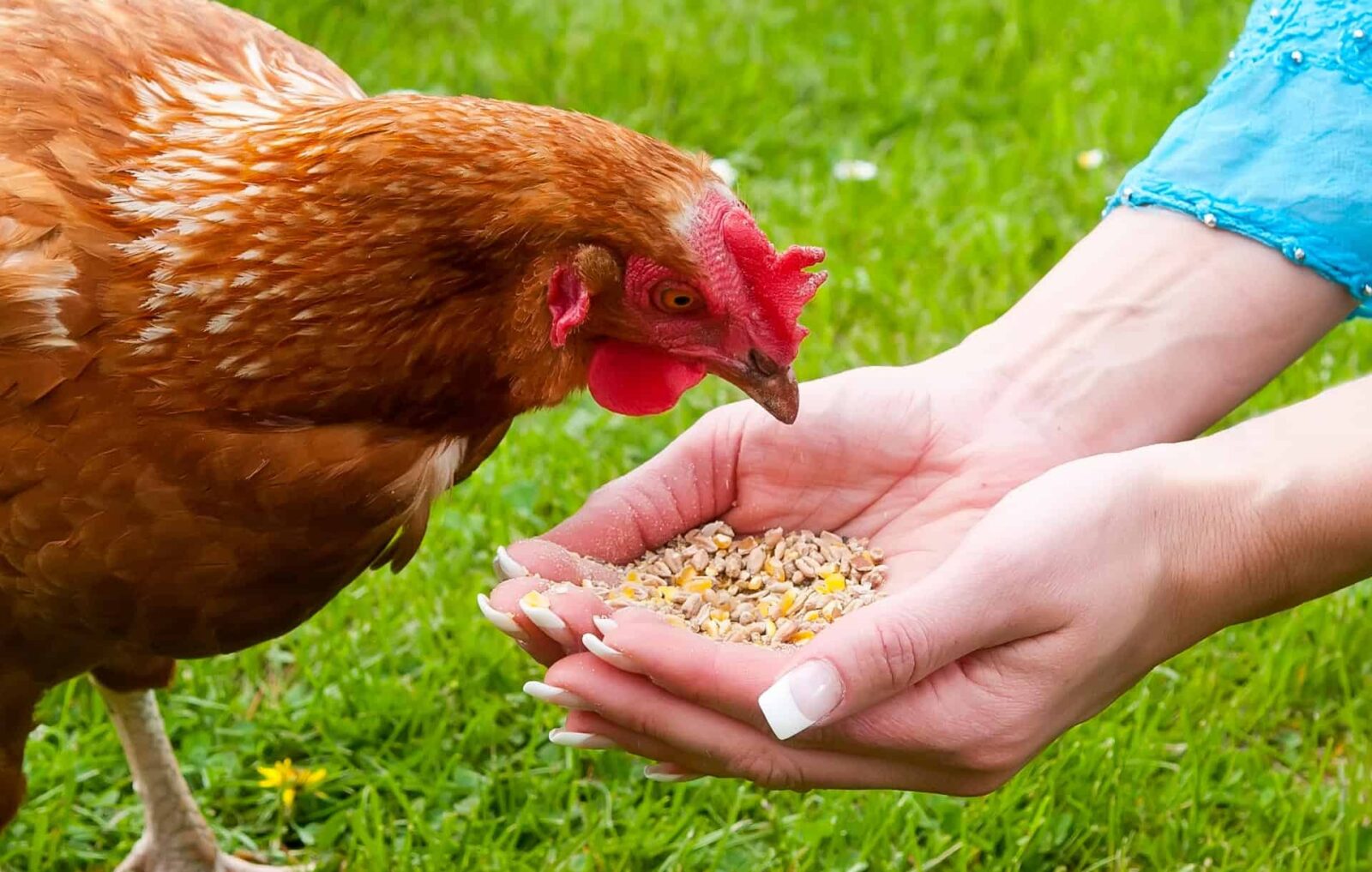







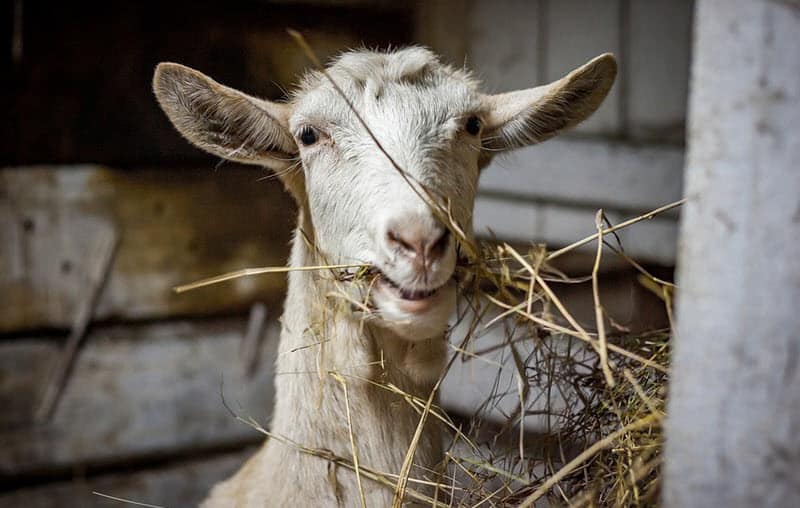


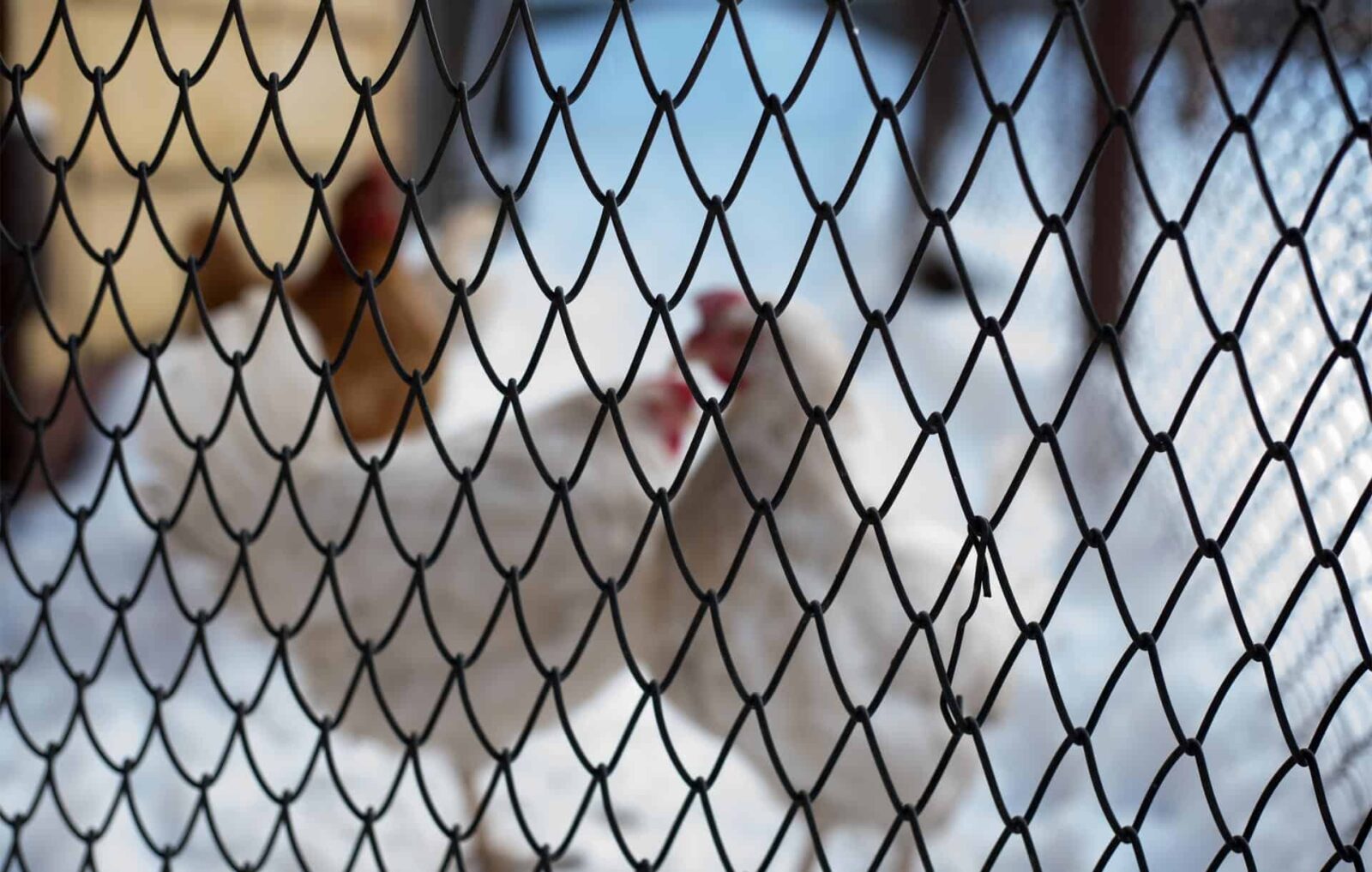
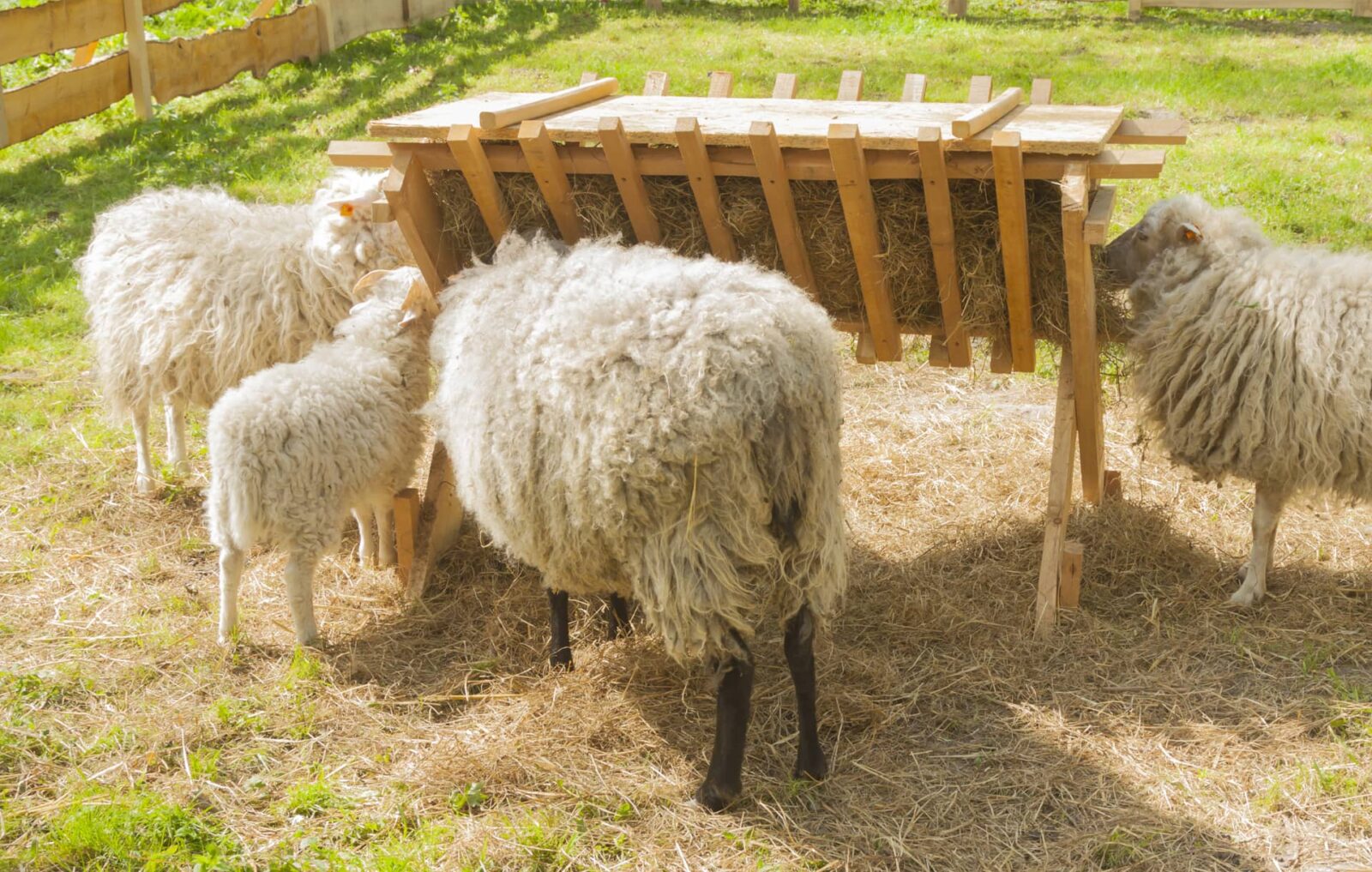

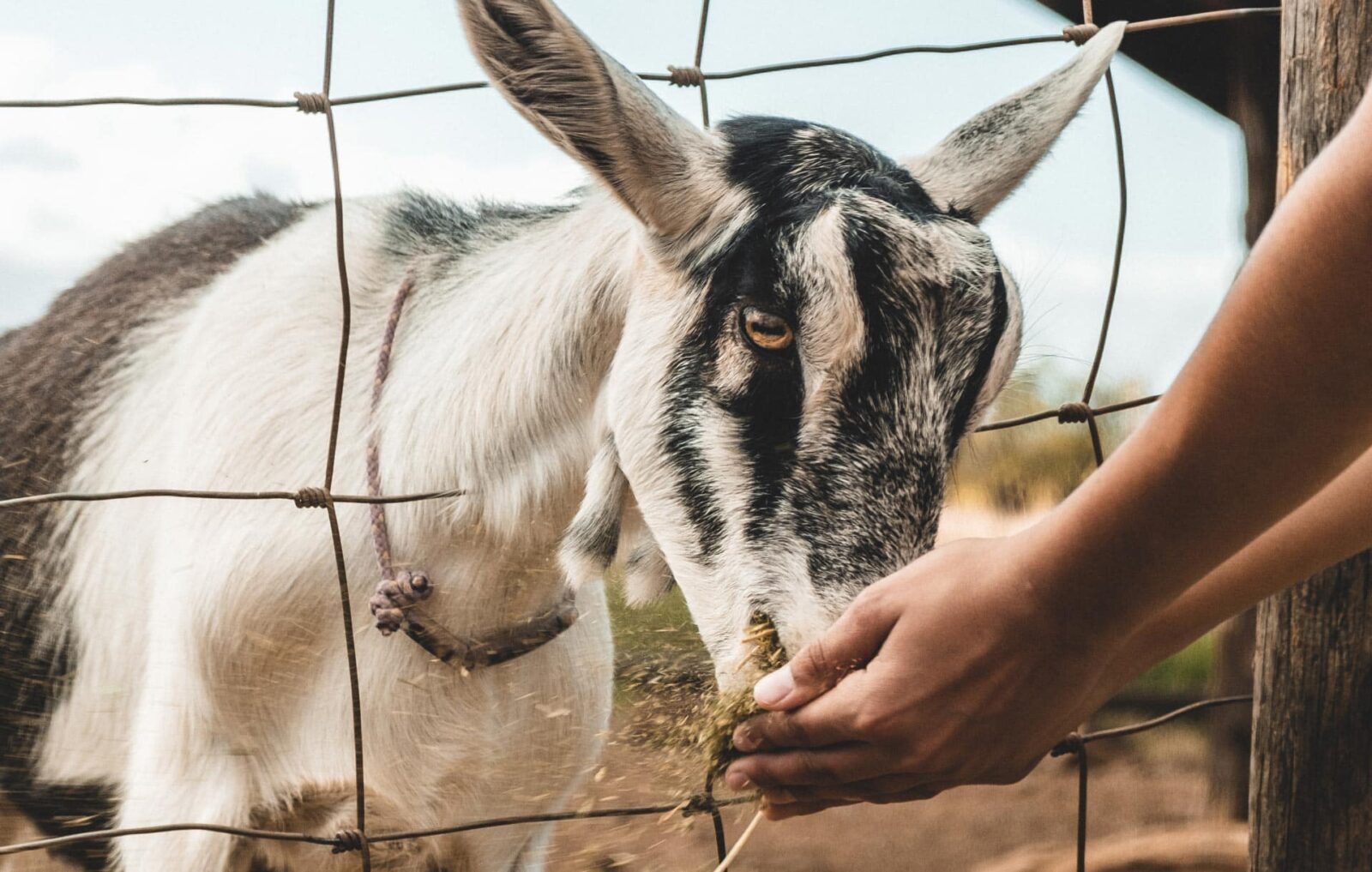



Leave a Reply